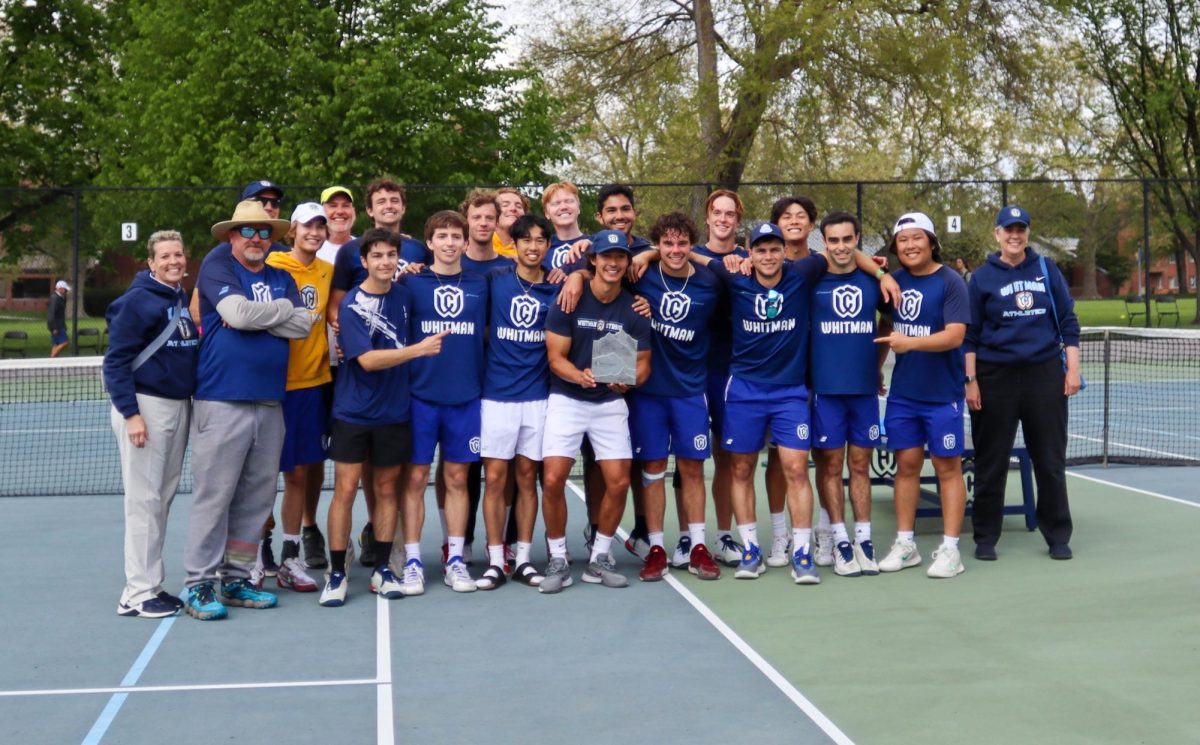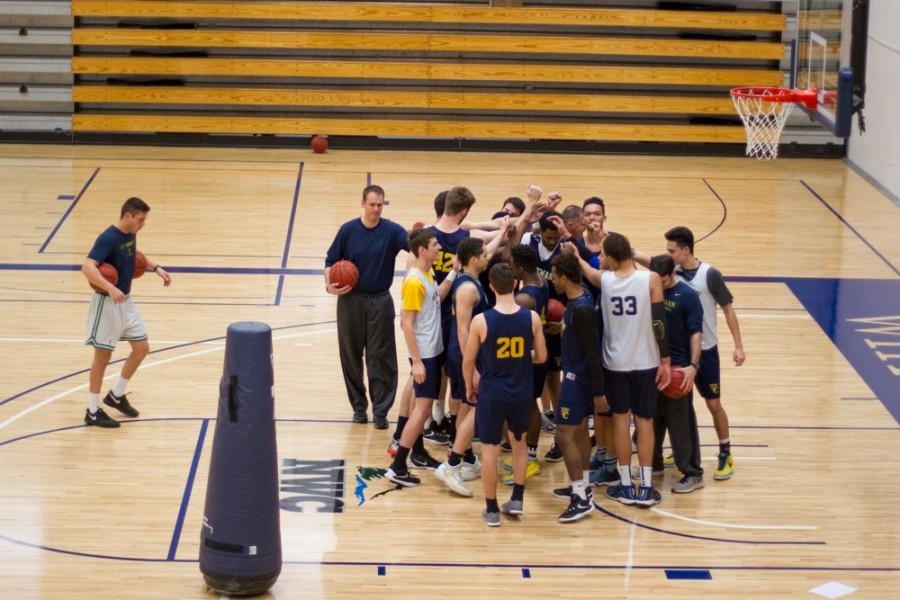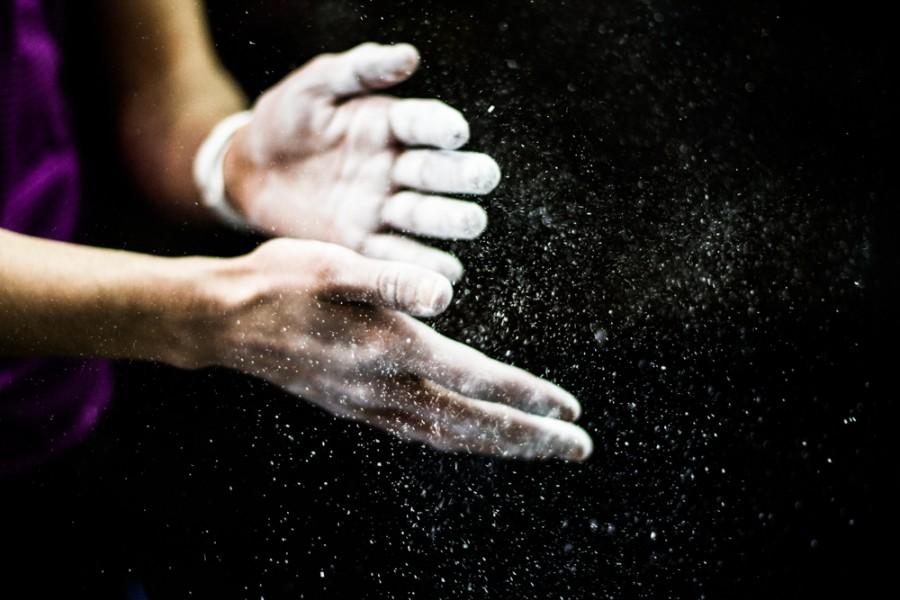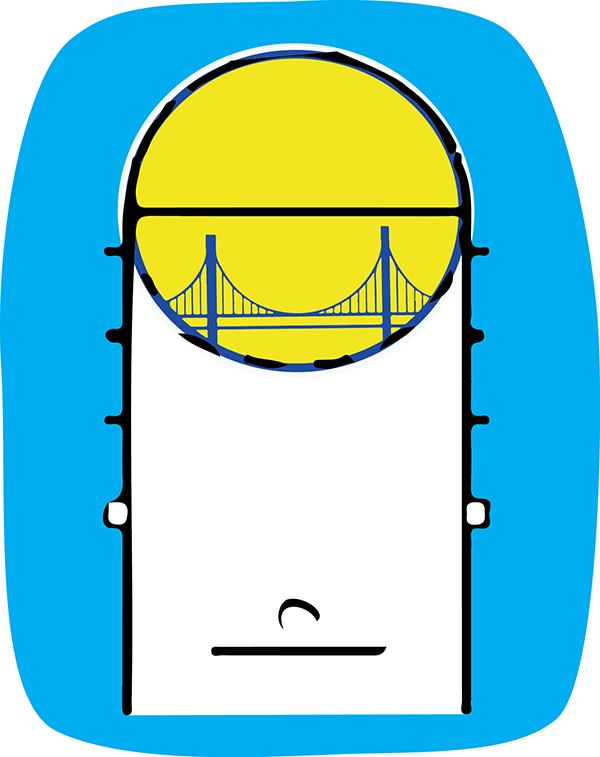Most varsity athletes here at Whitman have spent the majority of their lives honing their skills in one particular sport, a feat that requires a tremendous amount of dedication and passion. Except for a select few, Whitman athletes do not generally entertain illusions of playing at the next competitive level, which means that for senior athletes, when that last whistle or buzzer sounds it is most likely the end of a long chapter in their lives. This creates an inordinate amount of pressure to make that final season special, to make one final statement, because the back of their minds is a ceaseless countdown until that last game.
For some, like senior men’s basketball member Clay Callahan, who broke his leg two weekends prior, even that countdown is cut short. Although he finds it daunting to be finished with basketball, he is also looking ahead.
“I think I’m fortunate to have a lot of other things that I’m excited about in my life right now, so it won’t be too difficult, too much of a void,” he said.
For Callahan that includes attending a national championship in slam poetry at Virginia Commonwealth University over spring break. He is also considering holding a solo show sometime this spring. While Callahan’s injury cut his final season short, it is also important to note that it isn’t all that uncommon of a story; the last memories of many athletes here at Whitman are on the sideline.

One such player is junior transfer Alex Barsher. For Barsher, soccer had always been a huge part of his identity growing up; his life revolved around it, and that didn’t change when he arrived at Whitman. In fact, he credits playing soccer here as helping him ease into academics and providing a dominant facet of his social life. In the midst of his inaugural season, in which he was currently leading the league in scoring, Barsher suffered from a nasty concussion that ended his season prematurely. Another concussion occurred in close succession the following season and would eventually end his soccer career. Barsher explains what he misses most about the sport.
“It’s the competitive rush that you get, the thrill that it provides. There aren’t many things that fired me up as much as soccer did,” he said.
But soccer wasn’t his only source of enjoyment, and there are numerous other activities at Whitman available. He’s been staying in shape and playing Frisbee, and he believes that it will eventually be something he gets good at. While the transition out of soccer has been hard one, being at Whitman has made it easier.

A similar story is that of Barsher’s former teammate, sophomore Sam Perkins. In the time period between Barsher’s concussions, Perkins sustained one of his own, which marked the fifth concussion of his life. Just like Barsher, he was forced to quit the sport that he considered to be a lifetime passion. Though a difficult reality, the neurological consequences of continuing to play were something that both Perkins and Barsher agreed weren’t worth the risks.
“Making the decision to quit was difficult; however, it was in the back of my mind for years. I’m certain it was the right time to stop soccer, given that I had been advised to stop four concussions prior,” said Perkins.
Barsher echoed this sentiment.
“It’s something that affects the rest of your life. It’s not something you want to mess around with,” he said.
Although they described quitting as being difficult, in truth, it wasn’t an actual decision. What is most shocking about Perkins and Barsher is that the decision was essentially made for them, leaving them with no agency in the process.
With a surplus of free time, Perkins focuses most of it on firefighting but also enjoys exploring the outdoors and adventuring with his peers. His thoughts are similar to Callahan’s.
“Although I deeply miss something I’ve spent my entire life passionate about, its great to let my passions and commitment carry on to other parts of my life,” he said.
For all three Whitties, ending their athletic careers has been a time of reflection but also opportunity. It is that aspect that should be the takeaway from all of this, a message that Perkins would like to impart.
“It’s important to recognize that being passionate can be a dynamic process, and new opportunities are always available,” he said.







